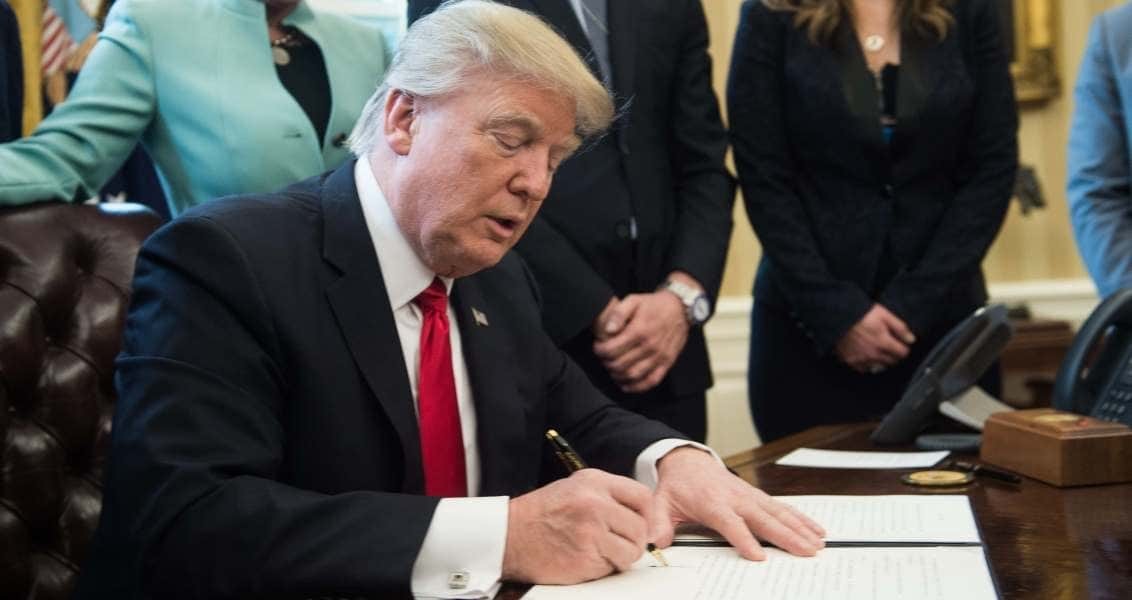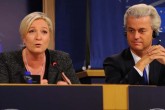Donald Trump addressed Congress on Tuesday. In the interview he gave to Fox News prior to the speech, Trump stated that he had done wonderful work up till that day and that he thought he had been successful, but that he had been mediocre when it came to expressing just how much he had accomplished. Trump’s opponents stated that on the contrary, Trump had done no work and what he had displayed was really an amazing performance of showmanship.
At this point, it is not just the Democratic Party that is trying to cast Trump as an “illegitimate actor,” but certain Republicans and opposition centers representing the Washington elite, CNN foremost among them, are doing this as well.
This brings with it the serious threat of a political lockdown and the risk of a crisis of hegemony in American politics. Former Michigan mayor Jennifer Granholm, saying, “Trump is the president of the minority, not the majority” on CNN, easily shows her feelings toward him on illegitimacy. This has essentially become the mainstream approach taken up by the entirety of the American opposition.
It is for this exact reason that The New York Times is producing articles with headlines like “Where is the U.S.’s deep state.” Many people are speaking of ways to impeach Trump. Rosa Brooks, while speaking of the three ways to get rid of Trump, insinuated that a military coup against Trump should not be a solution that is quickly disregarded. The reactions that Brooks’ piece in Foreign Policy garnered demonstrated that her views are not at all marginal among “American Democrats.”
Francis Fukuyama expressed in a piece from last month that he regarded Donald Trump’s presidency as a test of how strong America’s institutions are, writing, “As a political scientist, I am looking ahead to his presidency with great interest, since it will be a fascinating test of how strong American institutions are.” According to him, the checks-and-balances system has not been faced with a leader inclined toward undermining its norms and rules.
If you ask me, I believe that there are two aims being cultivated, whether it’s the discourse exhibited by Fukuyama, writing on the deep state or the military coup debates coming up in media outlets such as The New York Times or Foreign Policy. The first is to consolidate the opposition bloc against Trump. The second is to contain Trump, limit him, and obstruct the actualization of his policies.In the joint session address he made to Congress, while Trump once again emphasized his intentions to turn his theses into policies, he used very careful language and emphasized commonalities rather than differences. NBC News, referring to Trump’s Congressional speech, used the expression, “It was Trump at his most presidential.”
In his speech to Congress, the president mentioned the main policies in the three fundamental areas upon which he has formulated his grand strategy, namely refugees, the economy, and terrorism. In this framework, Trump emphasized that the middle class was on the rocks and that American capital and wealth was flowing to foreign countries. Trump stated that employment opportunities would be created for Americans, and that industries dying out would be rejuvenated and that new roads, airports, and railroads would be made. Asking Congress to approve the skeleton law allowing for the investment of $1 trillion, Trump stated that with this “historic tax reform,” it would be possible to alleviate the tax burden on the middle class and American companies.
Trump promised a new migrant policy for the U.S. in order to thwart drug trafficking, reduce crime, and strengthen the labor market. He repeated his promise to “build a huge wall along our southern border.” Alongside this, using the examples of Canada’s and Australia’s migrant policies, Trump stated they would take up a “migrant policy based on competence.”
On the matter of the war on terrorism, Trump once again used the expression “radical Islamic terror” and said there would be new steps taken in this area. Under this idea, he stated that there would be a new plan enacted in the struggle against Daesh and that they were enacting new sanctions on institutions and persons supporting Iran’s ballistic missile program.
Trump carrying out these policies, while making his voters happy, will have the traditional Washington elite even more uncomfortable. In this upcoming period, Trump will attempt to raise support for himself among the elites while also widening his base among the general public through more inclusive political discourse. However, carrying both of them out together will be one of Trump’s biggest contradictions.
[Daily Sabah, March 3, 2017]



